The network “Labour Geography” is a project funded by the German Research Foundation (DFG) since 2022, which is closely connected to the working group.
The aim of the network is to anchor Labour Geography as an independent research field in the German-speaking scientific community and to contribute to the international debate in Labour Geography in dialogue with traditions of thought and concepts from the German-speaking world.
The work in the network is oriented towards the following thematic blocks:
- Global production networks: How do workers construct their own levels of action within GPN? What possibilities and strategies of networked action do workers pursue within GPN?
- Gender relations & social reproduction: How can we bring together everyday actions of workers with feminist perspectives? How can we spatially relate structure and (labor) agency to production and social reproduction?
- Unequal development: what agency do workers have outside of the formal wage-labor relationship? What do dependency, imperial lifestyles, and coloniality mean for the potential to sustainably improve labor relations for all workers*?
- Society-nature relations: What can a decidedly spatial actor perspective contribute to the field of environmental labor studies? What spatial dynamics are relevant to the development of Just Transition perspectives?
- Digitalization: How does digitalization change the organization of work and the agency of workers in selected sectors? How can workers actively shape the technological change of work?
- Social meaning of work: How and on which scales do perceptions of (one’s own) work as “system-relevant” or socially meaningful combine with claims to shape working and living conditions? What role does an expanded concept of care play in the debate about socially meaningful work?
- Cross-cutting research methodological issues: What challenges arise for the emancipatory design of research relations in light of the socio-structural, cultural and geographical inequality between workers* and scientists*? What does the Corona pandemic mean for research, for example with regard to the possibilities of articulation of workers in the face of intensifying attacks on social rights in some countries or with regard to spatial divisions between scientists and workers?
The main part of the work of the DFG network takes place in two annual meetings, which are planned until June 2024. In addition to the exchange of content, results in handbook form, panels, special issues, and joint individual publications are also planned.
Founding members
Unlike the working group, in which all interested parties participate, the network has the following founding and associate members:
- Prof. Dr. Christin Bernhold, University Hamburg
- PD Dr. Peter Birke, University Göttingen
- Dr. Kendra Briken, University of Strathclyde Glasgow
- PD Dr. Florian Butollo, WZB / Weizenbaum Institute
- Dr. Márton Czirfusz, Periféria Policy and Research Center, Budapest
- Dr. Michaela Doutch, University Bonn
- Anne Engelhardt, Universität Kassel
- Michael Fütterer, Universität Salzburg
- Dr. Bettina Haidinger
- Dr. Tine Haubner, University Jena
- Prof. Dr. Stefanie Hürtgen, Institut für Sozialforschung Frankfurt am Main / University Salzburg
- Dr. Tatiana López, University Würzburg
- Dr. Jörg Nowak
- Saumya Premchander, University Göttingen
- PD Dr. Oliver Pye, University Bonn
- Dr. Nora Räthzel, University Umeå
- Dr. Nadine Reis, El Colegio de México
- Dr. Nicolas Schlitz, University Graz
- Prof. Dr. Karin Schwiter, University of Zurich
- Prof. Dr. Anne Vogelpohl, HAW Hamburg
Associated members:
- Prof. Dr. Kristina Dietz, University Kassel
- Yannick Ecker, Halle University
- Prof. Dr. Bettina Engels, Freie Universität Berlin
- Sinje Grenzdörffer, University Kiel
- Stephan Liebscher, Freie Universität Berlin
- Prof. Dr. Christof Parnreiter, University Hamburg
- Dr. Louisa Prause, Humboldt University Berlin
